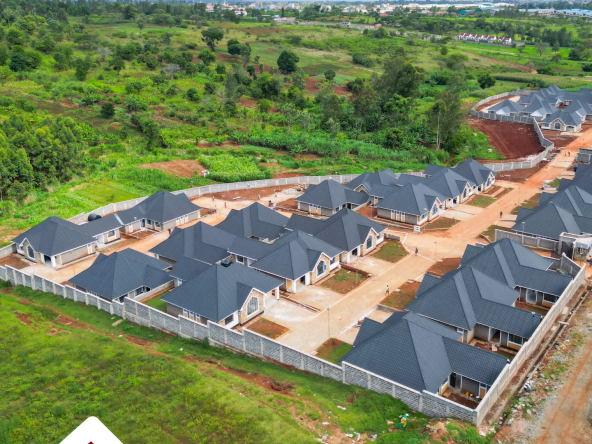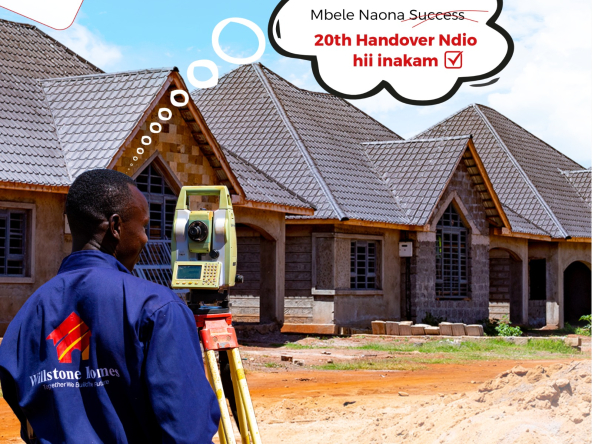When the Kenya Property Developers Association (KPDA) held its annual conference in September under the theme “Reset, Reform, Rise,” the message to the market was unmistakable: the old rhythm of Kenya’s property sector is changing. Behind the corporate speeches and panel sessions was a quiet acknowledgment that something deeper is shifting — from how developers build to how investors think.
The End of the Easy Bet
For nearly two decades, Nairobi’s property market has been predictable. Buy land early in the growth corridors — Kamulu, Joska, Juja, Thika — wait a few years, and your returns are practically guaranteed. But in 2025, that comfortable math no longer holds.
The “reset” KPDA is talking about isn’t a buzzword; it’s a wake-up call. Financing is tighter, building materials are more expensive, and county approvals can drag for months. More critically, global investors are now benchmarking Kenya’s property sector against sustainability and compliance standards — not just location and price.
A buyer walking into the Nairobi land market today must think beyond where the plot sits and start asking what kind of future the area is being designed for.
Read Also: Friday Flow at Willstone Homes: Where Hustle Meets Heart, and the Weekend Begins with a Win
The New Vocabulary of Investment
Terms like “green buildings,” “AI-driven design,” and “tax harmonization” sound abstract, but they’re shaping tomorrow’s deals in very real ways.
- Green design now influences building approvals, especially in mixed-use estates. Counties are under pressure to enforce eco-friendly drainage, solar readiness, and waste management.
- Digital mapping means land ownership data is becoming transparent — reducing fraud, but also tightening loopholes that speculative buyers once exploited.
- Fiscal reforms are redirecting government incentives toward developments that align with sustainability and housing affordability.
What this means for investors is that the smartest money is now ethical money. Projects that anticipate environmental and regulatory standards will hold value longer — and resell faster.
Reading the Market from the Ground Up
At Willstone Homes, we’ve noticed that Nairobi’s growth corridors — Kamulu, Joska, and Thika — are quietly maturing. The speculative frenzy is giving way to planned development: paved access roads, power upgrades, and the first signs of estate zoning. Buyers who once bought for quick resale are now buying for controlled growth.
This shift isn’t accidental. It’s what the “reform” phase of the KPDA agenda looks like on the ground. Landowners are learning that capital gains flow from clarity — titled plots, serviced access, and reliable community infrastructure — not just proximity to Nairobi.
If 2018–2022 was about chasing cheap land, then 2025–2030 will be about building credible ownership stories.
A Time for Intelligent Buying
Every property cycle has its noise — and its window of quiet opportunity. The current one sits in between: rates are high, approvals are slow, but long-term investors are moving quietly. They’re picking up well-documented parcels, serviced plots, and land near infrastructure projects whose value will mature as the regulatory dust settles.
The real winners won’t be the loudest advertisers, but the most informed buyers — those who align with credible developers and keep an eye on Kenya’s evolving urban policy.
Read Also: Where Foundations Meet Legacy: Building Tomorrow’s Homes in the Shadow of a Nation’s Giant
Future-Proofing Your Land Investment
Here’s the rulebook, simplified for the 2025 investor:
- Think policy-first. If a region aligns with the government’s sustainability agenda, it’s a long-term bet worth taking.
- Go for serviced land. Power, drainage, and road access are no longer add-ons; they’re value multipliers.
- Verify titles digitally. With the land registry digitization ongoing, paper titles are giving way to online verifications — embrace it.
- Partner with credible firms. Developers who understand both compliance and local zoning — like Willstone Homes — are your safest bridge between policy and profit.
Property investment in Kenya 2025 isn’t about nostalgia; it’s about navigation. The KPDA “reset” is a call for investors to trade instinct for insight — to understand not just what’s changing, but why it’s changing.
And as the new rules take shape, one truth remains: informed buyers will always find the quiet paths to growth, even in a noisy market.





